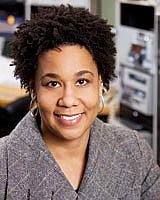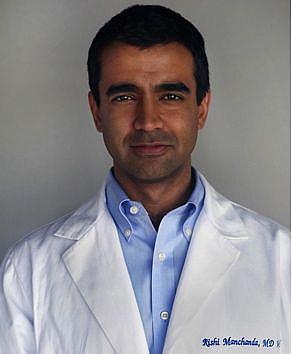Health and the Built Environment Webinar: What Makes a Healthy Environment?
Communities that lack good access to healthy fresh food likely struggle with significant health problems such as obesity, heart disease and diabetes. Those same communities often don’t have safe environments for kids to play and for adults to exercise and can suffer from a disproportionate share of substandard housing and environmental hazards.
At a time when researchers are mapping connections between physical environment and health, Reporting On Health presents a webinar that explores how environmental and social conditions impact health.
WHYY Senior Health Writer Taunya English and Rishi Manchanda, M.D., helped us talk through the issues and story ideas. A recording of the webinar will be available soon.
Panelists

WHYY Senior Health Writer Taunya English covers stories across the Philadelphia region. She has documented the links between nutrition and disease; the changing relationship between doctors and patients; and efforts to give people healthier places to live, work and play.
English's radio work on WHYY-FM airs during Morning Edition and All Things Considered. Her television work appears on Delaware's newsmagazine First. She received a 2012 Dennis A. Hunt Fund for Health Journalism grant for a series of stories looking at how environment affects health called “Designs on Health.”
Before joining WHYY, Taunya led statehouse news coverage for Public Radio Capitol News in Harrisburg, Pa. For three years, she worked as a freelance health reporter for Baltimore’s National Public Radio affiliate, WYPR. Her stories gave attention to African-American farmers in rural Maryland, lay health workers in the Washington, D.C., suburbs, and homeless people trying to hold on to their jobs.
English began her journalism career as a newspaper reporter in Northern California, then moved on to become a science writer in Washington, D.C. She earned her graduate degree from Northwestern University’s Medill School of Journalism.

Rishi Manchanda is a physician, public health entrepreneur, and writer. He practices internal medicine and pediatrics and is the lead physician at a primary care clinic for homeless veterans at the Veterans Health Administration in Los Angeles.
He is also the founder and president of HealthBegins, a startup implementing innovative technologies and training to improve care for patients with medical and social needs. He previously practiced primary care at a community health center network in south Los Angeles, where he served as the clinic’s first director of social medicine and health equity. He is an assistant professor at Charles R. Drew University of Medicine and Science and the founder of RxDemocracy, a national nonprofit, nonpartisan coalition of health care and civic groups that promote health equity through civic and voter participation.
His work focuses on systems innovations and technologies to improve the health of vulnerable patients and communities with complex medical and social needs. He is a regular lecturer at colleges and universities on innovations in primary care and public health, the social determinants of health, and health and human rights. Manchanda is a board member of the National Physicians Alliance and Physicians for Social Responsibility — Los Angeles and has served on the advisory board of the Grameen Creative Lab, a project of Nobel Peace Prize Laureate Muhammad Yunus.
In June 2013, Manchanda published his first book, "The Upstream Doctors," through TED Books, an imprint of short nonfiction works designed for digital distribution. In the book, Manchanda coined the term "Upstreamist," which describes healthcare professionals who treat not only the symptoms, but also the social and environmental conditions of everyday life that cause disease. Through stories, case studies, and interviews with leading Upstreamists, the book presents a new conceptual model of the healthcare workforce and presents a roadmap to train over 24,000 Upstreamists by 2020.
